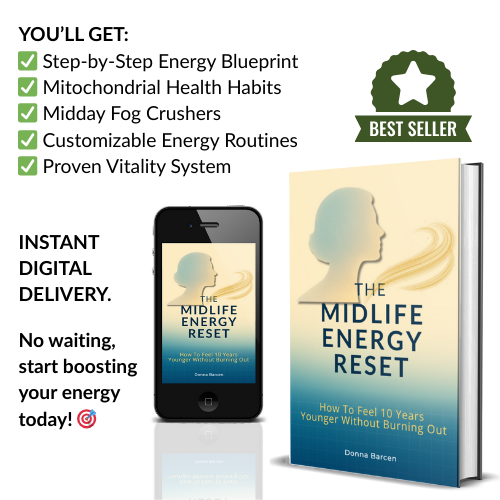You know the story. Monday morning: “This time I’m really doing it. No carbs, no sugar, just clean eating.” By Friday night? You’re half-laughing, half-crying into a pizza box wondering how it all went wrong… again.
Sound familiar? That’s the binge-restrict cycle at work. You swear off certain foods, your brain feels deprived, cravings build like a pressure cooker, and—BOOM—you’re binging on the very thing you tried to avoid. Cue guilt, shame, and another round of “I’ll start fresh on Monday.”
Here’s the good news: you don’t need to break up with your favorite foods to break the cycle. In fact, the key to stopping overeating is often the exact opposite—permission, balance, and a little self-compassion.
Let’s walk through how.
Why the Cycle Keeps Spinning (and It’s Not About Willpower)
The binge-restrict loop works a lot like a rubber band. The harder you pull (restrict), the more it snaps back (binge).
The problem isn’t your willpower—it’s biology. When you deprive yourself, your brain shifts into survival mode: it craves food, especially high-energy stuff like carbs and sugar. It’s not weakness, it’s wiring.
Stop blaming yourself for “lack of discipline.” The real issue is the restriction itself.
Allow Every Food A Seat At The Table
That doesn’t mean grabbing three tubs of ice cream in the name of “balance.” It means dropping the “good vs. bad food” labels.
Try this instead:
-
Make a list of the foods you usually forbid yourself.
-
Pick one to reintroduce—intentionally and mindfully.
-
Sit down, put it on a plate, and actually savor it.
Surprisingly, the more you allow yourself these foods, the less power they have.
Listen To What Your Hunger Is Really Saying
Here’s a quick test:
-
Physical hunger → builds slowly, stomach growls, any food sounds appealing.
-
Emotional hunger → hits suddenly, feels urgent, and usually demands something specific (like fries at 10 pm).
Keep a “hunger journal” for a week. Rate how hungry you are on a scale of 1–10 before eating. You might notice that late-night snacking isn’t about hunger at all—it’s about stress or boredom.
Let Go Of The “Perfect Day” Mindset
We’ve all been there: “I had one cookie, so I might as well eat the whole box.”
That mindset fuels binges. Instead, adopt the 80/20 approach:
-
80% nourishing foods that support your goals.
-
20% flexible foods you love.
Pizza with a side salad? That’s balance. Dessert after dinner? Totally fine. One “off” meal doesn’t ruin your progress—unless you let it spiral into an “off” week.
Feed Yourself Before You’re Starving
Skipping breakfast might sound like a quick way to “save calories,” but it usually backfires. When you’re overly hungry, your brain wants fast energy, and suddenly the drive-thru looks irresistible.
Aim for three balanced meals plus a snack. Build plates with protein, fiber, and healthy fats—it keeps cravings in check.
Example: Anita started eating eggs and avocado toast in the morning. Not glamorous, but suddenly her 10 pm pantry raids stopped.
Find Comfort In More Than Just Food
If food is your go-to for stress relief, you need a backup plan. Try:
-
A 10-minute walk
-
Journaling your thoughts
-
Calling a friend
-
Meditation or deep breathing
Create your own “soothing toolkit.” The goal isn’t to eliminate emotional eating forever—it’s to have other options in your toolbox.

Make Meals An Experience, Not A Rush
Instead of inhaling your food while scrolling TikTok, try slowing down:
-
Put your fork down between bites.
-
Notice the flavors and textures.
-
Halfway through, pause and ask: “Am I still hungry, or satisfied?”
You’d be surprised how much less food it takes to feel full when you’re actually paying attention.
Measure Success In Energy, Calm, And Confidence
Fat loss is often the goal, but freedom from food guilt is just as powerful. Instead of obsessing over the scale, track progress by:
-
Fewer binge episodes
-
More consistent meals
-
Feeling calmer around “trigger foods”
-
Improved energy and mood
Remember: Perfection isn’t the goal. Consistency is.
Takeaways (Pun Intended!)
The binge-restrict cycle isn’t a sign of failure—it’s a signal that the way you’ve been approaching food isn’t working for you. By letting go of rigid “rules,” eating more consistently, and finding healthier ways to cope with stress, you can finally step out of the guilt-shame spiral and feel more at peace around food.
And if stress and low energy are part of what keeps pulling you back into that cycle, you don’t have to figure it out alone. You can start with my FREE guide, A Smarter Way to Beat Stress, which gives you simple, practical tools to calm your system and create more balance in your day.
If you’re ready to go deeper into building long-term energy and resilience—well beyond dieting rules—the Midlife Energy Reset offers a full step-by-step framework to help you recharge at the cellular level and feel stronger, clearer, and more in control.




